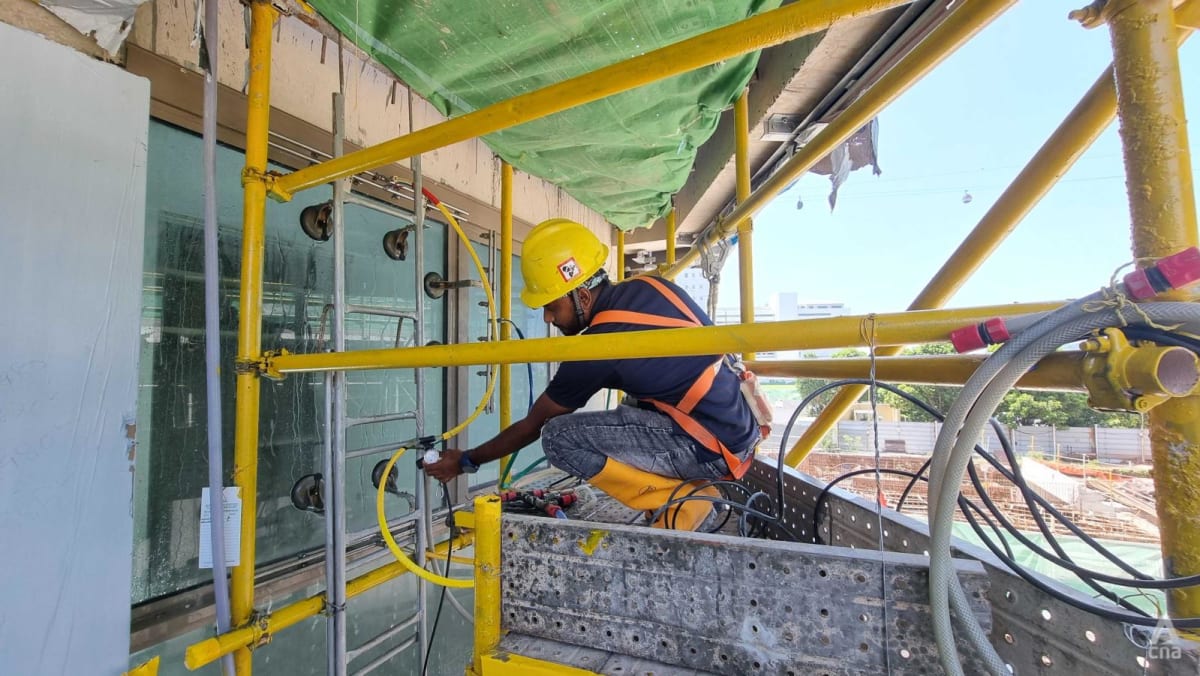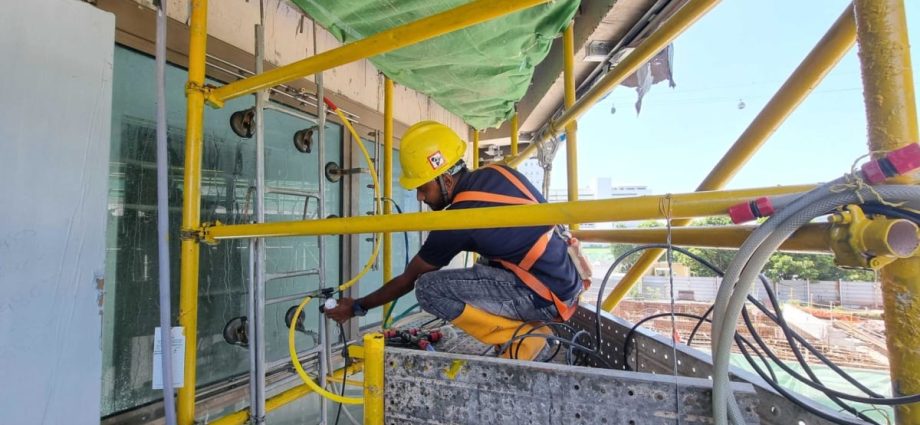
SINGAPORE: Homebuyers who want to gauge the level of workmanship of condominium projects can now check a new banding system that ranks developers and builders according to their track record for the past six years.
The banding is based on the Construction Quality Assessment System (CONQUAS), a framework established in 1989 to assess construction workmanship. It tests for major defects that can affect liveability, including wall tiles popping off and water leakage.
“Many a time when a buyer buys a new unit, the project is under construction, that means that they can’t inspect the actual quality of the unit. So we hope that CONQUAS banding will help the homebuyer to make an informed decision,” said Mr Neo Choon Keong, deputy CEO of Industry Development at the Building and Construction Authority (BCA).
While the CONQUAS score for projects were released in the past, the new banding is a more “intuitive” way for the homebuyer to make comparisons, he added. In addition, the scores are now aggregated across projects so that developers and builders will also fall under one of six bands.
Those in Band 1 and 2 have delivered projects with very few major defects upon BCA inspection, while buyers may want to “think twice” about those in Band 5 or 6, said Mr Neo.
Currently, 20 developers and 15 builders are in Band 1, including City Developments and Woh Hup. A check on Thursday by CNA on the Quality Housing Portal found no projects, developers or builders in the worst band – 6 – while there were 20 developers in Band 5.
The portal currently contains the CONQUAS banding of 110 developers and 76 builders, covering 350 private residential projects completed in past six years as well as projects undergoing assessments. It is expected to be updated monthly as the assessments of new projects are added.
Mr Neo highlighted that 95 per cent of residential units are in projects that have adopted CONQUAS, but it is not mandatory for all. Currently, about 5 per cent of units, typically from smaller developments, are not within the system.

